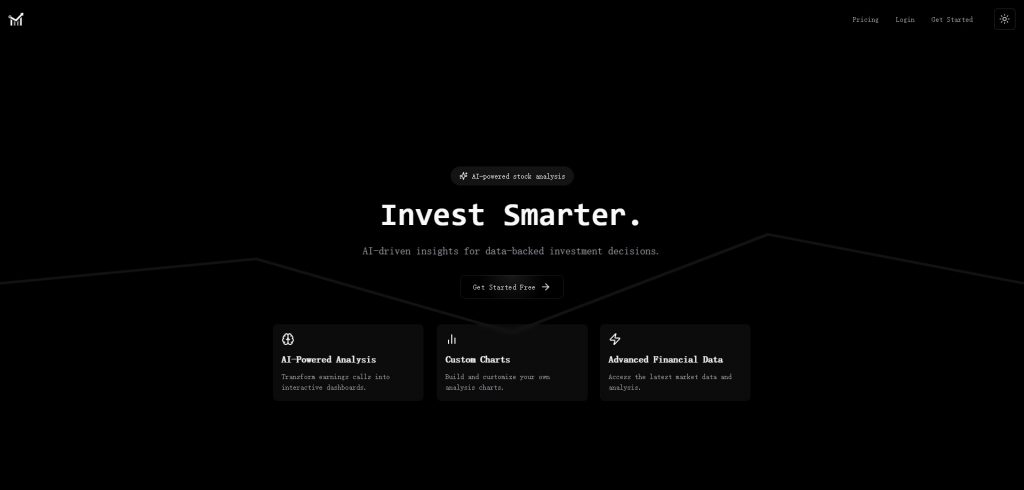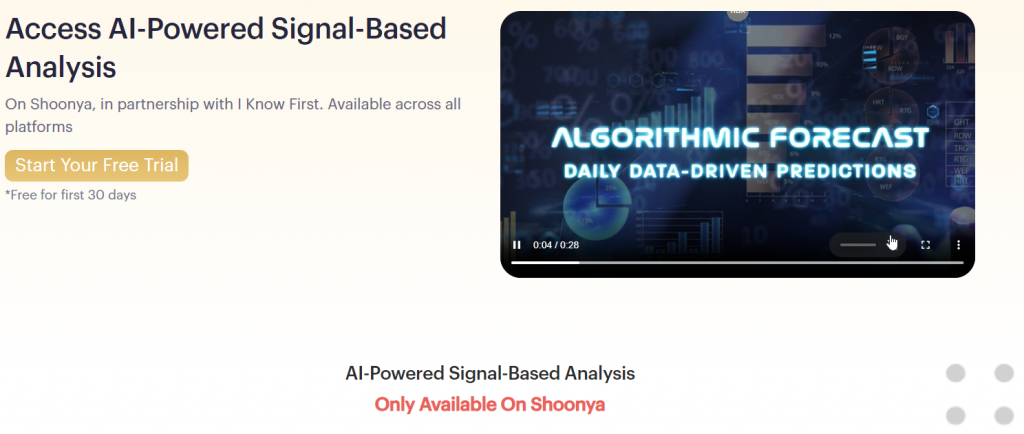20 New Suggestions For Choosing Free Ai Tool For Stock Market India Sites
20 New Suggestions For Choosing Free Ai Tool For Stock Market India Sites
Blog Article
Top 10 Suggestions On How To Evaluate The Integration Of Ai Stock-Predicting/Analyzing Platforms And Their Compatibility
Integrity and compatibility are the most important factors to consider when evaluating AI analysis and forecasting platforms for trading. A platform that seamlessly integrates with your existing tools such as systems, workflows, and processes will greatly improve efficiency and productivity. Here are the top ten suggestions to assess compatibility and integration.
1. Check Brokerage Integration
Brokers that are supported: Make sure the platform is compatible with the brokerage you prefer account, or trading account.
Trade execution: Verify whether the platform permits direct trade execution using the broker integrated.
Account synchronization. Check if the platform permits you to sync your account balances in real-time, as for transactions and positions.
2. Check API Availability
API access - Check that the platform has an API that lets developers to build customized tools or automate workflow processes.
API documentation - Check that the API's examples and usage cases are well-documented.
Rate limits: Check if the API has reasonable rates limits that can handle the volume of usage you're expecting.
3. Review the Third-Party Integration
Popular tools Check to see whether there is any integrations between the platform as well as tools such as Google Sheets, Excel, or trading robots.
Export and import of data. Ensure your platform can export/import easily from/to other tools.
Extensions/Plugins: Determine if your platform supports plugins or extensions for additional capabilities.
4. Test Compatibility Using Operating Systems
Desktop compatibility - Ensure that the platform you select can be used with Windows, macOS and Linux.
Mobile compatibility: Determine whether there's a mobile application for iOS or Android.
Web-based access: Verify whether the platform is accessed via a web browser for more flexibility.
5. Evaluation of Data Integration Capabilities
Data sources. Make sure the platform supports several data integrations (e.g. data providers for social media, market sentiment news feeds, etc.).
Real-time data streams: Confirm that the platform is able to integrate live data streams to provide the most up-to-date analysis.
Check the platform's ability to import historical data.
6. Examine cloud and On-Premise compatible
Cloud-based platform: Accessible from anywhere, with an Internet connection.
Solutions on-premise: If you prefer to deploy on premises, check if the platform supports it.
Look for hybrid alternatives. It is a type of model which combines cloud and on-premises features.
7. Look for Cross Platform Syncronization
Device synchronization - Ensure that your platform is synchronized to sync settings and information across all devices (desktops mobiles, tablets, desktops).
Check that changes made on one device are immediately reflected on the other devices.
Access to offline data: Determine that your application has restricted functionality and access to data even when you are offline.
8. Examine the compatibility of trading Strategies
Algorithmic trading: Check that the platform supports automated or algorithmic trading strategies.
Custom indicators: Make sure that your platform allows indicators or scripts that are specific to your needs.
Backtesting strategies: Find out if the platform is capable of back-testing trading strategies using historic information.
9. Examine Security and Compliance
Data encryption: Ensure that the platform uses encryption for data in transit and in rest.
Authentication Check to determine if your platform supports an authentication method that is secure (e.g. 2-factor authentication).
Compliance with regulatory requirements: Ensure that the platform meets the relevant laws (e.g. GDPR, FINRA or SEC).
10. Test Scalability Performance
Scalability: The platform should be able to handle growing user numbers and data volumes.
Performance under stress: Check whether your platform is able to adapt to conditions of high volatility in the market.
Resource usage: Check if the platform efficiently uses system resources (CPU, memory, bandwidth).
Bonus Tips
User feedback: Check out user testimonials and reviews to assess the platform's ability to integrate.
Free trial period: You can use a demo or free trial to check the platform's compatibility with your current workflows and tools.
Support for customers: Make sure the platform provides a solid assistance for integration-related issues.
You can assess the compatibility, integration, and efficacy of AI stock trading platforms by following these guidelines. Take a look at the top read more for chatgpt copyright for site examples including ai investment advisor, incite, best stock analysis app, ai stock market, trader ai app, investment ai, best artificial intelligence stocks, trading with ai, trade ai, stock analysis websites and more.
Top 10 Tips For Evaluating Regulatory Compliance With Ai Stock Predicting/Analyzing Trading Platforms
Regulation compliance is a key aspect to consider when evaluating trading platforms that use AI. Compliance assures that a platform is in compliance to financial regulations and adheres to legal frameworks and safeguarding user data. This minimizes the chance of financial penalties or legal issues. Here are 10 best strategies to determine the regulatory compliance on these platforms.
1. Check the Licensing and Registration
Regulatory bodies: Ensure the platform is registered and licensed by relevant financial regulatory authorities (e.g., SEC in the U.S., FCA in the UK, ASIC in Australia).
Broker partnership: If a platform incorporates brokers, verify that brokers are also properly licensed and regulated.
Public records: Search the website of the regulator to see whether the platform is registered or if it has any time violated the law.
2. Assessment of the data privacy Compliance
GDPR: If operating in or serving users in the EU Make sure that the platform complies with the General Data Protection Regulation (GDPR).
CCPA: California Consumer Privacy Act compliance is mandatory for users.
Policy on handling data: Make sure you read the privacy policies to know the ways in which data of users is stored and collected.
3. Examine the Anti-Money Laundering(AML) Actions
AML policies: Make sure the platform is able to abide by AML policies to stop and identify cash laundering.
KYC procedures: Check whether the platform is using Know Your Customer (KYC) which validates user identities.
Check the platform's transaction monitoring. Does it monitor transactions and report any suspicious activity to relevant authorities?
4. Verify the compliance of Trading Regulations
Market manipulation: Check that the platform has measures in place to prevent manipulation of the market such as spoofing and wash trading.
Types of orders. Verify that the platform is in compliance with all rules regarding order type (e.g. there isn't any illegal stop loss hunting).
Best execution: Ensure that the platform is following the most efficient execution procedures to ensure that trades are executed at the most favorable price.
5. Cybersecurity Assessment
Data encryption: Ensure that your platform is secure for data in transit and while at rest by encrypting it.
Incident response: Verify if the platform has a clear incident response strategy for data breaches or cyberattacks.
Certifications - See whether your platform holds any cybersecurity certifications.
6. Evaluate Transparency and disclosure
Fee disclosure: Ensure that the platform clearly outlines the total amount of fees, which includes any hidden or additional charges.
Risk disclosure: Ensure that the platform is transparent about all risks, particularly if you are using high-risk strategies or trading with leverage.
Performance reports - Check to see if there are accurate and transparent performance reports that are provided by the platform for its AI models.
7. Make sure you're in compliance with International Regulations
Transparency in trading across borders: If you are trading internationally, ensure that the platform you use is in compliance with all applicable regulations.
Tax reporting: Determine whether there are tax reporting reports or tools to assist you in complying with the tax regulations.
Compliance with sanctions: Verify that the platform adheres and does NOT allow dealings or transactions with banned countries or entities.
8. Examine Audit Trails and Record-Keeping
Transaction records: Ensure that the platform keeps complete records for purposes of regulation and audit.
User activity logs (logs): Check to check if the platform records the user's activities, including logins and trades. Also, make sure that the settings for your account have been modified.
Audit readiness: Find out if your platform can provide the required logs and documentation in the case of an inspection from a regulatory authority.
9. Assess compliance with AI-Specific Regulations
Algorithmic trading rules: If using a platform that allows algorithmic trading, make sure it is compatible with relevant regulatory frameworks such as MiFID II or Reg SCI in Europe as well as the U.S.
Fairness and Bias: Check for any biases the platform is able to detect and reduce in the AI model. This will ensure ethical and fair trade.
Explainability: Some laws require that platforms explain AI-driven decisions or predictions.
10. Review feedback from users and review the regulatory history
User reviews: Make use of feedback from users to assess the platform's compliance with regulations.
History of regulatory violations - Check to find out if the platform is known for any past legal violations or fines.
Third-party checks: Check the compliance of the platform with the law by checking whether it is subject to regular audits by third parties.
Bonus Tips:
Legal consultation: Think about consulting an expert in law to assess the platform's conformity to relevant laws.
Trial period: Make use of a demo free or trial to test compliance features on the platform.
Customer support - Check that the platform is able to assist with any compliance related issues or concerns.
These suggestions will assist you to determine the level of compliance for AI trading platforms that can predict or analyze price of stocks. So, you'll be able to choose a platform which is legal, and also protects your. Compliance is important as it does not just reduce the risk of legal liability, but also builds trust and confidence in the platform. Take a look at the top rated best ai stock for website info including best stock advisor, ai investing, chatgpt copyright, ai for stock trading, ai stock price prediction, investment ai, trade ai, chatgpt copyright, trader ai app, stock analysis app and more.